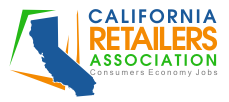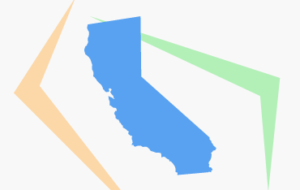Businesses using facial scans would have to alert customers under bill
By Katy Murphy
Politico Pro
08/21/2019 01:54 PM EDT
SACRAMENTO — California bars, nightclubs and other businesses that use facial recognition scans to identify customers would have to alert them before they are captured on camera under a new privacy proposal moving through the Legislature.
CA AB 1281 (19R), by Assemblyman Ed Chau (D-Monterey Park), stakes out a middle ground in the battle over biometric surveillance. Rather than restricting its use by private businesses as some consumer advocates have demanded, the bill would require establishments to post “clear and conspicuous” signs at each entry, warning unsuspecting customers about the new technology.
“It’s a way for people to get it fully through their heads when this is happening to them, and to make an affirmative choice if they want to continue or if they don’t want to continue in business as usual,” said Tracy Rosenberg, of Oakland Privacy, an advocacy group that supports AB 1281.
The legislation is being debated as California prepares to roll out a groundbreaking new consumer-privacy law, the California Consumer Privacy Act, and alongside another bill, CA AB1215 (19R), that would ban the use of facial recognition technology on police body camera footage.
But consumer advocates are split on the legislation, with groups including the ACLU and Electronic Frontier Foundation saying it doesn’t go far enough. And the California Retailers Association objects to new amendments requiring the signs be displayed in a way that ensures people can read them before they are exposed to the technology, arguing the requirement is unclear and that the notices won’t help customers much anyway.
“There’s so much signage now that people are almost immune to reading signs. They almost just push past it,” said Rachel Michelin, president of the California Retailers Association.
The state Department of Finance also opposes the bill, citing enforcement costs. AB 1281 is in the Senate Appropriations Committee, which will either block the proposal or move it to the floor by next week.
The use of facial-recognition software is spreading in the private and public sectors, raising civil rights and privacy concerns even as proponents cite potential security benefits. In Sacramento alone, dozens of bars scan ID cards and photographs to identify customers and assist with police investigations, while some have used it to create a blacklist of patrons throughout the network, the Sacramento Bee reported this summer.
Michelin said some retailers adopt the technology with the goal of curbing “organized retail crime.”
Last week, as part of a debate over whether police should be allowed to use such technology on their body cameras, the ACLU of Northern California ran Amazon’s Rekognition software on the images of 120 state lawmakers. About one in five of them returned matches from a public mugshot database, the ACLU said, using the system’s default confidence threshold of 80 points out of 100. Amazon called the test misleading, saying it generally recommended that police use a confidence threshold of 99.
AB 1281 would help policymakers and the public grapple with where and how biometric scans should be used, Rosenberg said.
“No one wants to feel that when you go to buy a soda with cash,” she said, “that who you are is something the establishment that you’re shopping at has to know. They don’t.”



